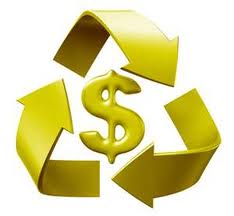
Stock Buybacks: A path to riches?
Following on from my article on dividends, stock buybacks are another way in which firms can distribute earnings to shareholders. Buybacks can lead to significant gains, especially over a prolonged period. Before we dive into some case studies, let’s overview the general theory.
Share buybacks occur when a firm offers to purchase its own shares from investors. Those who participate receive a cash payment in exchange for their shares. By buying back shares, the firm decreases its total float outstanding, which means that each remaining investor’s stake in the company has now increased.
For example, if an investor owns 50 shares in a company that has a float of 1000 shares, and 500 shares are bought back by the firm, then the investor’s ownership has now increased from 5 per cent to 10 per cent (50/500 = 10 per cent).
Continuing with these figures, our investor is now entitled to 10 per cent of the firm’s earnings as opposed to 5 per cent. If the company hasn’t paid too much to buy back the shares, our investor’s holding may be worth substantially more.
In addition, assuming the investor hasn’t realised any of his profits, they won’t be taxed on this gain as they would had the company paid dividends.
If the firm continues to buy back shares, the investor’s ownership will continue to increase and his share of the firm’s overall profits will grow.
This sounds great and thankfully it’s not just theory. IBM began its share buyback process in 1993 (outstanding shares: 2.3 billion) when the share price was in the $10-$15 dollar range. 20 years later and the share price has passed $200 (outstanding shares: 1.1 billion). Not all of these gains can be attributed to the share buybacks, but they have most certainly helped.
There are some cases of course where buybacks can be inappropriate. Without naming specific companies, there have been instances where buybacks appear to have been used to boost earnings per share results, thus achieving management performance targets (by sheer coincidence, I’m sure…).
Share buybacks can also be problematic if too high a price is paid. Frequent readers of this blog will understand that if a stock is worth $10 and the company pays $20, it’s probably not going to benefit shareholders’ long-term returns.
Buybacks may suit some investors and not others depending on their financial circumstances, but regardless I hope that the above is helpful.
This post was contributed by a representative of Montgomery Investment Management Pty Limited (AFSL No. 354564). The principal purpose of this post is to provide factual information and not provide financial product advice. Additionally, the information provided is not intended to provide any recommendation or opinion about any financial product. Any commentary and statements of opinion however may contain general advice only that is prepared without taking into account your personal objectives, financial circumstances or needs. Because of this, before acting on any of the information provided, you should always consider its appropriateness in light of your personal objectives, financial circumstances and needs and should consider seeking independent advice from a financial advisor if necessary before making any decisions. This post specifically excludes personal advice.
INVEST WITH MONTGOMERY
In May 2011 JB HIFI completed a buy back of 9.9% of their issued shares at $16 this being about 14% below the market before the buy back announcemrnt
The Company had to borrow funds to complete the buy back
Could this have been used to boost earnings per share results, thus achieving management performance targets
Look I cannot go into huge detail
But there’s maybe two other scenarios I think should be considered
1) In equity markets (mainly US ones) it can be problematic when companies would rather issue debt to buyback securities instead of using their stockpiled cash. See: AAPL. This has an impact on overall credit growth in the economy because it shows debt issuance but really it’s a form of doing a quasi leveraged buyout of your own company.
Which feeds into:
2) If companies use stockpiled cash to perform buyback rather than reinvesting in their business, then basically they could be chopping long term performance for the sake of what they think is increasing potential net ownership in the company. Goodman Fielder is accused of underinvesting. Now if you look back in the early 2000’s, you’ll see how it’s performing share buybacks with a target of like $100ml per annum. Now I havent sat down and done a proper analysis of this but I’d rather a company deploy cap to grow business and reinvest in product / marketing rather than a short term boost to my overall stake.
Lucas a buyback is not a short term boost though, its a permanent effect. If the company reduces the number of shares on issue (assuming it doesn’t raise further equity) it’s permanently increasing the portion of each year’s earnings that is attributable to each shareholder. Even if earnings remained flat this would permanently increase the value to the remaining shareholders.
Is borrowing to fund buybacks justifiable?